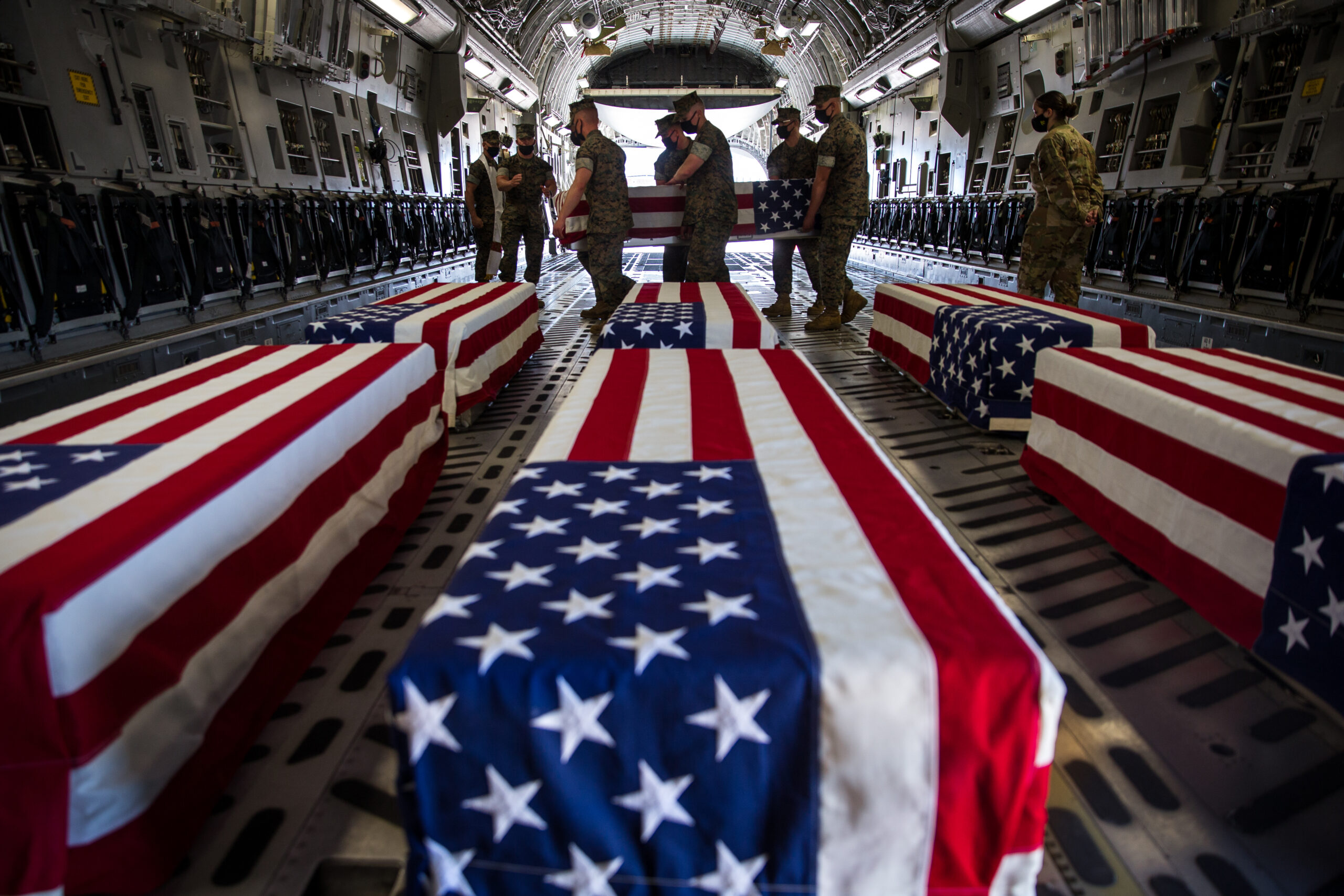

Peter Vienna told lawmakers on Monday that the loss of his son, Navy Corpsman Christopher Gnem, in last year’s amphibious assault vehicle training accident has been made much more painful by knowing how preventable it was.
Citing the numerous failures that a command investigation found leading up to the July 30 disaster that claimed the life of his son and eight Marines, Vienna made clear that he refuses to describe the sinking of the amphibious assault vehicle off San Clemente Island, California, as a “mishap.”
“We know that what actually occurred was a predictable outcome resulting from a reckless disregard for human life by a command that ignored its own safety standards and operational procedures, putting mission above the young lives they were supposed to protect – not a combat mission – this was just training,” Vienna said. “And if I hear one more time ‘we have to train like we fight,’ I think my head will explode because for decades now, it’s been true that every year the military loses more lives in training than they do in combat.”
Vienna testified before the House Armed Services Subcommittee on Readiness along with Peter Ostrovsky, father of Lance Cpl. Jack Ryan Ostrovsky. Both parents said they felt their sons were the victims of gross negligence by the Marine Corps. Indeed, a retired Marine Corps colonel charged exactly that on Friday in an op-ed for Task & Purpose.
Peter Ostrovsky said his son told him a week before the accident that he had concerns about the Marine Corps’ amphibious assault vehicles, noting: “They sink all the time.”
“It was hard for me to believe that statement, but now I know there was more to the story; that was the basis for his concern,” the elder Ostrovsky said.
Jack Ryan Ostrovsky was supposed to be his family’s next leader, eventually having children of his own and looking after his brother Samuel, who has suffered from a lifelong educational disability, his father said.
“When the Marine Corps briefed [my wife] Lynn and I on the results of the investigation, we were shocked and disappointed by the top-down recklessness, gross negligence and lack of duty, of care, for our son and all of the Marines and sailors in his AAV company,” Peter Ostrovsky said.
A command investigation found that as the amphibious assault vehicle was sinking on July 30, no safety boats were in the water that could have come to its assistance. After the accident, investigators found that the 36-year-old vehicle had many unsealed openings that allowed water in. Of the nine service members who died, eight had not completed training on how to escape from a submerged vehicle. And the seas were much rougher than expected.
At least two officers have been fired as a result of the accident: Col. Christopher Bronzi, formerly head of the 15th Marine Expeditionary Unit; and Lt. Col. Michael J. Regner, formerly commander of 1st Battalion, 4th Marine Regiment.
Maj. Gen. Robert Castellvi, who was commander of the 1st Marine Division during the accident, has also been suspended as Marine Corps Inspector General pending another investigation into how various units came together to form the 15th MEU.
The command investigation found that Castellvi had failed to hold a Marine Corps Combat Readiness Evaluation that may have identified some of the amphibious assault vehicle platoon’s problems with training and equipment prior to the accident. Castellvi was also responsible for making sure all members of the platoon were trained to get out of a submerged vehicle before they joined the 15th MEU.
On Monday, Marine Corps officials reiterated the command investigation’s conclusion that the deaths of the eight Marines and one sailor could have been prevented.
“But we failed,” said Marine Corps Assistant Commandant Gen. Gary L. Thomas. “We failed these brave young men.”
Calling Peter Vienna and Peter Ostrovsky’s testimony “heart-breaking,” Thomas said 11 Marines have been or will be held accountable for their roles in the accident. Some of those Marines are facing boards to determine if they should be separated.
“We make decisions regarding accountability based on an individual’s responsibilities and the performance of duties,” Thomas said. “An individual’s rank neither obligates nor excuses them from accountability.”
When asked by Rep. Jackie Speier (D-Calif.) if the accident was the result of recklessness, Thomas replied: “I think that some of the actions taken were reckless, yes.”
Maj. Gen. Gregg Olson, assistant deputy commandant for plans, policies and operations, said he is struck by the “senselessness” of the tragedy every time he reads the details of what happened.
“I was surprised at how cavalier some of the actions were,” Olson told Speier. “I would say that some of them rose to recklessness.”
Peter Vienna told lawmakers on Monday that it is their responsibility to make sure that the mistakes leading up to the July 30 sinking are never repeated again.
“In a situation like this, there needs to be accountability,” he said. “Without accountability, this is just going to continue. We’ll be watching you in three or four years – another hearing about lack of training and shoddy equipment and all these things. It’s just going to recycle itself.”
Featured image: Marines and sailors transfer the remains of eight service members who died in a July 30 assault amphibious vehicle accident to Dover Air Force Base, Delaware. (U.S. Marine Corps photo by Lance Cpl. Brendan Mullin.)